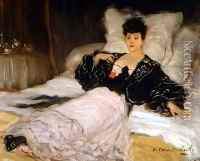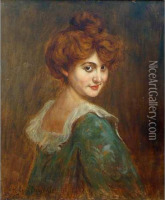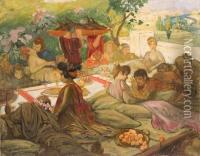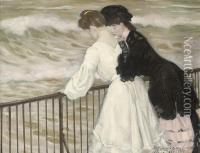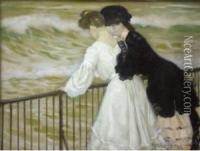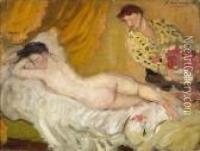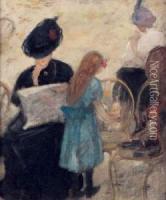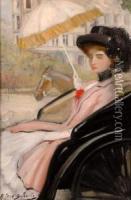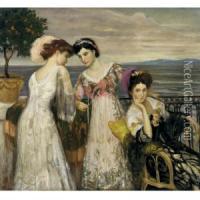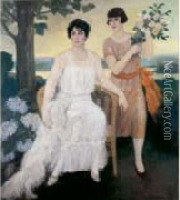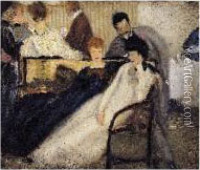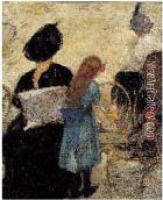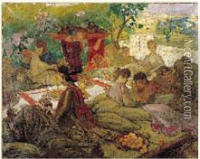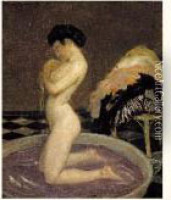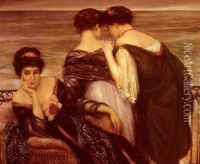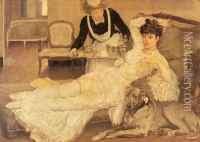Henry Caro-Delvaille Paintings
Henry Caro-Delvaille was a French painter born on March 1, 1876, in Bayonne. He was known for his portraits, nudes, and genre scenes that captured the elegance of the Belle Époque. His work reflects the influence of both the academic tradition and Impressionism. Caro-Delvaille studied at the École des Beaux-Arts in Paris and learned under renowned artists such as Jean-Léon Gérôme and Albert Maignan.
His career began to flourish in the early 20th century, and he exhibited his paintings at the Salon des Artistes Français, where he received several awards, including a gold medal in 1904. Caro-Delvaille's work was not only celebrated in France but also gained international recognition, particularly in the United States, where he held successful exhibitions and received commissions from wealthy American patrons.
In addition to his Salon exhibitions, Caro-Delvaille was also affiliated with the Société Nationale des Beaux-Arts and the Salon d'Automne. Throughout his career, he was known for his ability to capture the subtleties of light and shade, and his paintings often featured serene and contemplative subjects, often women, in luxurious settings.
Despite his success, Caro-Delvaille's life was not without challenges. The changing tastes of the art world with the advent of modernism and the trauma of World War I affected his career. Nevertheless, he continued to work and exhibit his art.
Henry Caro-Delvaille died on April 28, 1928, in Paris. Although his name is not as widely recognized today as some of his contemporaries, his contributions to the art of the late 19th and early 20th centuries continue to be appreciated by art historians and collectors. His works can be found in several museums and private collections around the world.
